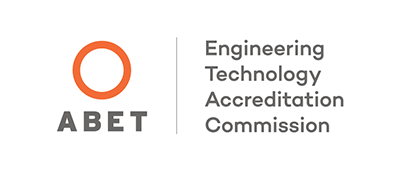The Bachelor of Science program in Industrial Distribution is accredited by the Engineering Technology Accreditation Commission of ABET, https://www.abet.org, under the General Criteria.
Mission and Vision Statement
The mission and vision of the Industrial Distribution Program at Texas A&M University
- Prepare graduates for sales engineering, sales management, supply chain operations and logistics management mid-management positions with wholesale distributors, who purchase, warehouse, sell, distribute and service a wide variety of products, and with manufacturers who sell through distributors.
- Conduct applied research and develop new best practices in industrial distribution, logistics, and supply chain management that mutually benefits the university and its industrial, governmental, and academic collaborators.
- Provide service and leadership in the promotion and advancement of the department, the university
and the industrial distribution profession. - Maintain a nationally recognized program through excellence in hands-on education, applied research, and service.
Program Educational Objectives
The Industrial Distribution program has as its program educational objectives to produce graduates who, after three to five years:
- Demonstrate the technical and managerial skills to have successful careers in designing, integrating and implementation of technical sales, operations
and customer services management systems in industrial distribution and supply chain management related industries. - Exhibit a commitment to professional ethics in their professional career.
- Demonstrate increasing levels of leadership and responsibility during their careers.
- Display a desire for life-long learning and sustainable productivity in a dynamic work environment.
Student Outcomes
At the time of graduation, an Industrial Distribution student has:
- An ability to apply knowledge, techniques, skills and modern tools of mathematics, science, engineering and technology to solve broadly-defined engineering problems.
- An ability to design systems, components or processes for broadly-defined engineering technology problems appropriate to the discipline.
- An ability to apply written, oral and graphical communication in both technical and non-technical environments, and an ability to identify and use appropriate technical literature.
- An ability to conduct standard tests, measurements, and experiments and to analyze and interpret the results to improve processes.
- An ability to function effectively as a member as well as a leader on technical teams.
- Accomplished the integration of systems using appropriate analytical, computational and application practices and procedures.
- Applied knowledge of probability, statistics, engineering economic analysis, cost control and other technical sciences and specialties necessary in the field of industrial engineering technology.
Undergraduate Program Enrollment and Graduation Data
| Academic Year | Fall Semester Undergraduate Enrollment | Academic Year Bachelor's Degrees Awarded |
|---|---|---|
| 2022-23 | 915* | N/A |
| 2022-23 | 868 | 303 |
| 2021-22 | 926 | 349 |
| 2020-21 | 1,040 | 360 |
| 2019-20 | 1,023 | 357 |
| 2018-19 | 1,060 | 383 |
Degrees Awarded=Fall, Spring & Summer of Academic Year (e.g., Fall 22, Spring 23, Summer 23)
Source: Office of Academic & Business Performance Analytics, Texas A&M University
